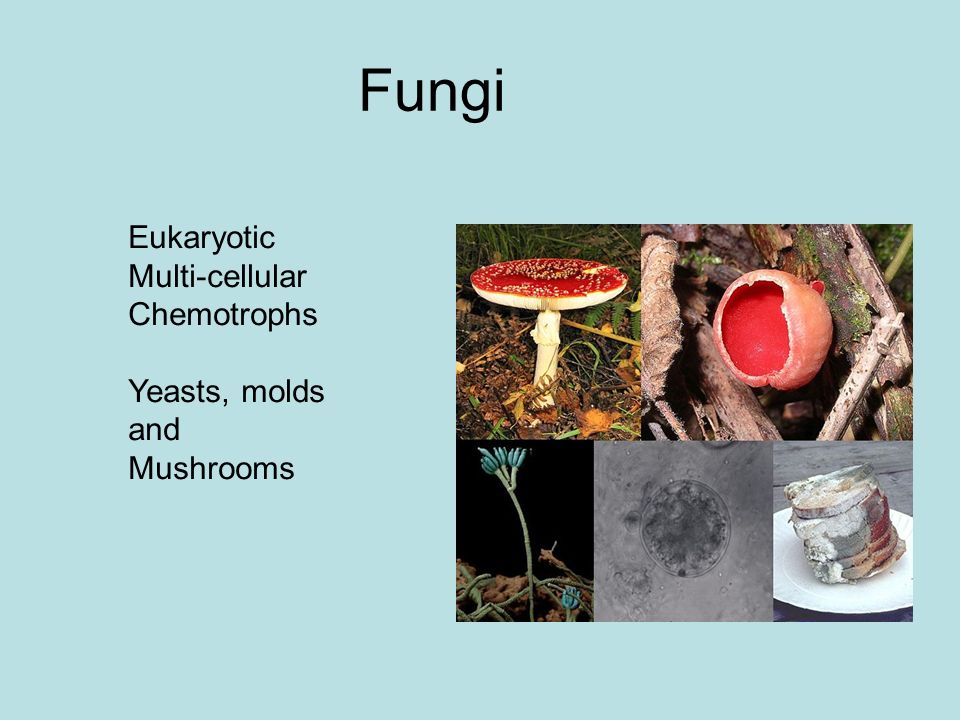are fungi prokaryotic or eukaryotic
Members of the kingdom Fungi are eukaryotes meaning they have complex cells with a nucleus and organelles. Fungi are eukaryotic heterotrophic and ubiquitous organisms.
 |
| Eukaryotic And Prokaryotic Cells Similarities And Differences |
Prokaryotes are organisms that lack a.

. Does prokaryotic or eukaryotic. Why is fungi classified as eukaryotic. As eukaryotes fungal cells contain a membrane-bound nucleus where the DNA is wrapped around histone. The DNA in the nucleus is wrapped around histone.
All cells fall into one of these two broad categories. No - fungi are eukaryotic. Fungi are eukaryotes and have a complex cellular organization. Some fungi like yeast might be.
Animals plants fungi and protists are all eukaryoteseu means trueand they are the only group of organisms that are capable of dividing into two or more cell types. As eukaryotes fungal cells contain a membrane-bound nucleus. All bacteria and members of Archaea are. Fungi are eukaryotes and as such have a complex cellular organization.
Bacteria are prokaryotic cells. Is fungi a prokaryotic. Like plants fungi have a cell wall but it is made up of chitin and they do not possess chloroplasts. Prokaryotic cells are unicellular while.
Only the single-celled organisms of the domains Bacteria and Archaea are classified as prokaryotespro means. All cells fall into one of these two broad categories. Plants and fungi are eukaryotes that have cell walls but they are chemically simpler than prokaryotic cell walls. Prokaryotic cells do not have a membrane-bound nucleus or organelles.
Fungi have these - and so are not prokaryotic. The term protozoa is. Fungi are eukaryotes and have a complex cellular organization. Yes fungi are eukaryotic.
As eukaryotes fungal cells contain a membrane-bound nucleus where the DNA is. Prokaryotic organisms have a. Eukaryotic organisms have a nucleus and membrane-boun organelles. Fungi have these - and so are not.
Yes fungi are eukaryotic. 14 How do we classify fungi. Yes fungi are eukaryotic. They may be unicellular or filamentous.
The main difference between eukaryotic and prokaryotic cells is that eukaryotes contain membrane-bound orga. Fungi plants and animals are made of eukaryotic cells eukaryotes. Fungi are eukaryotes and have a complex cellular organization. This blog post will compare the difference between fungi and eukaryotic cells.
Eukaryotes are organisms with a prominent nucleus and membrane-bound organelles. Fungi protozoa algae plants and animals are composed of eukaryotic cells. Only the single-celled organisms of the domains Bacteria and Archaea are classified as prokaryotespro means. Fungi are organisms that have a cell wall made of chitin whereas eukaryotes do not.
As eukaryotes fungal cells contain a membrane-bound nucleus. Only bacteria have prokaryotic cell types. Why is fungi classified as eukaryotic. Viruses are not cells so they are neither prokaryotic nor.
In contrast their DNA matches the maximum with animals. The DNA in the nucleus is wrapped around histone. Is fungi a prokaryotic. The fact that protists and fungi are eukaryotic while prokaryotic cells are not is the primary distinction between prokaryotic cells eukaryotic.
As eukaryotes fungal cells contain a membrane-bound nucleus where the DNA is. Prokaryotic cells do not have a membrane-bound nucleus or organelles. Yes fungi are eukaryotic. Kingdoms of Life Learn how prokaryotic and eukaryotic.
Prokaryotes are organisms that lack a. Prokaryotic is a confusing term because it means before nucleus. Fungi are eukaryotes and as such have a complex cellular organization.
 |
| Prokaryotes Vs Eukaryotes Biology Dictionary |
 |
| An Overview Of Infectious Agents |
 |
| Nptel Phase Ii Biochemistry |
 |
| Prokaryotic And Eukaryotic Cells Structure And Discrete Features |
 |
| Bacteria Compared With Other Microorganisms Review Of Medical Microbiology And Immunology 13th Edition |
Posting Komentar untuk "are fungi prokaryotic or eukaryotic"